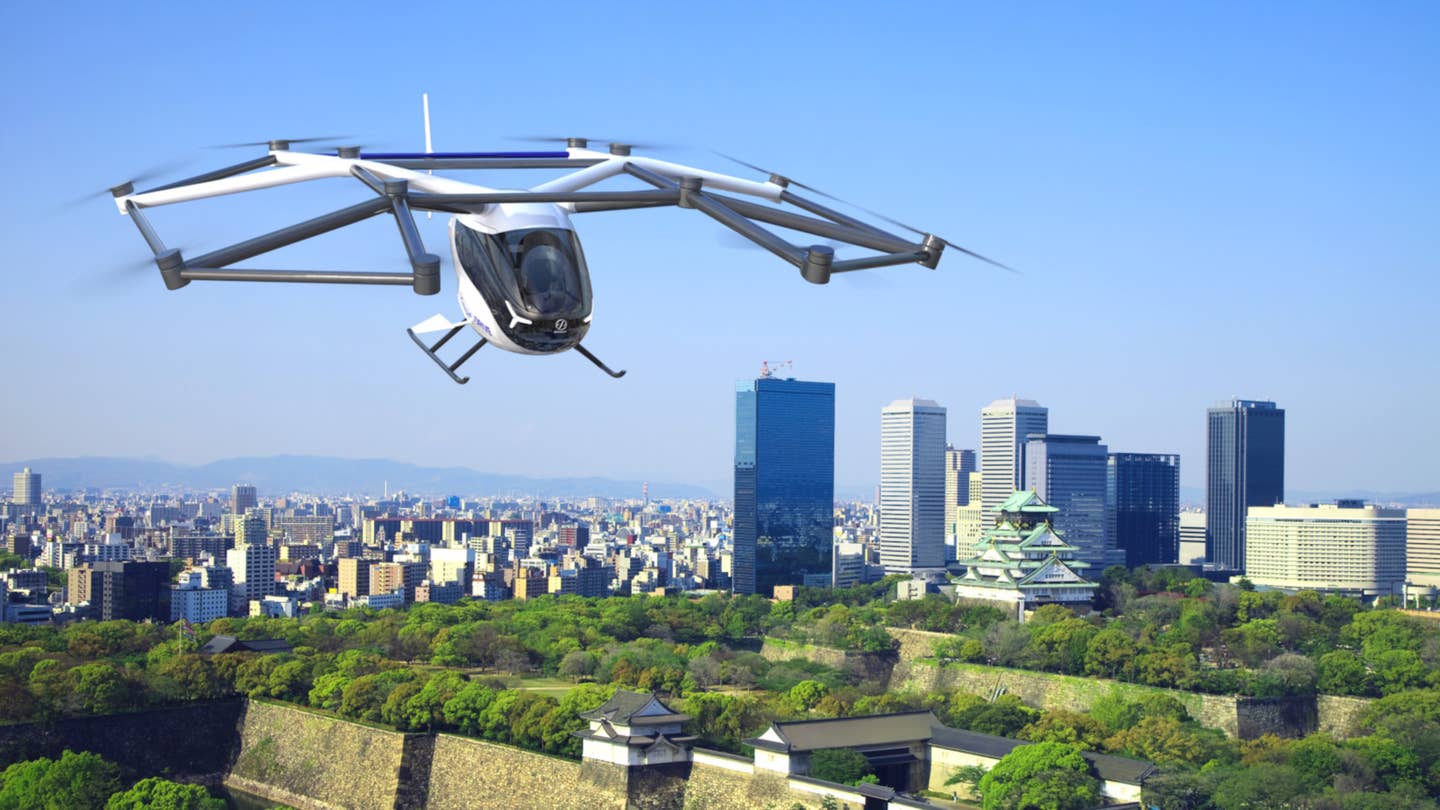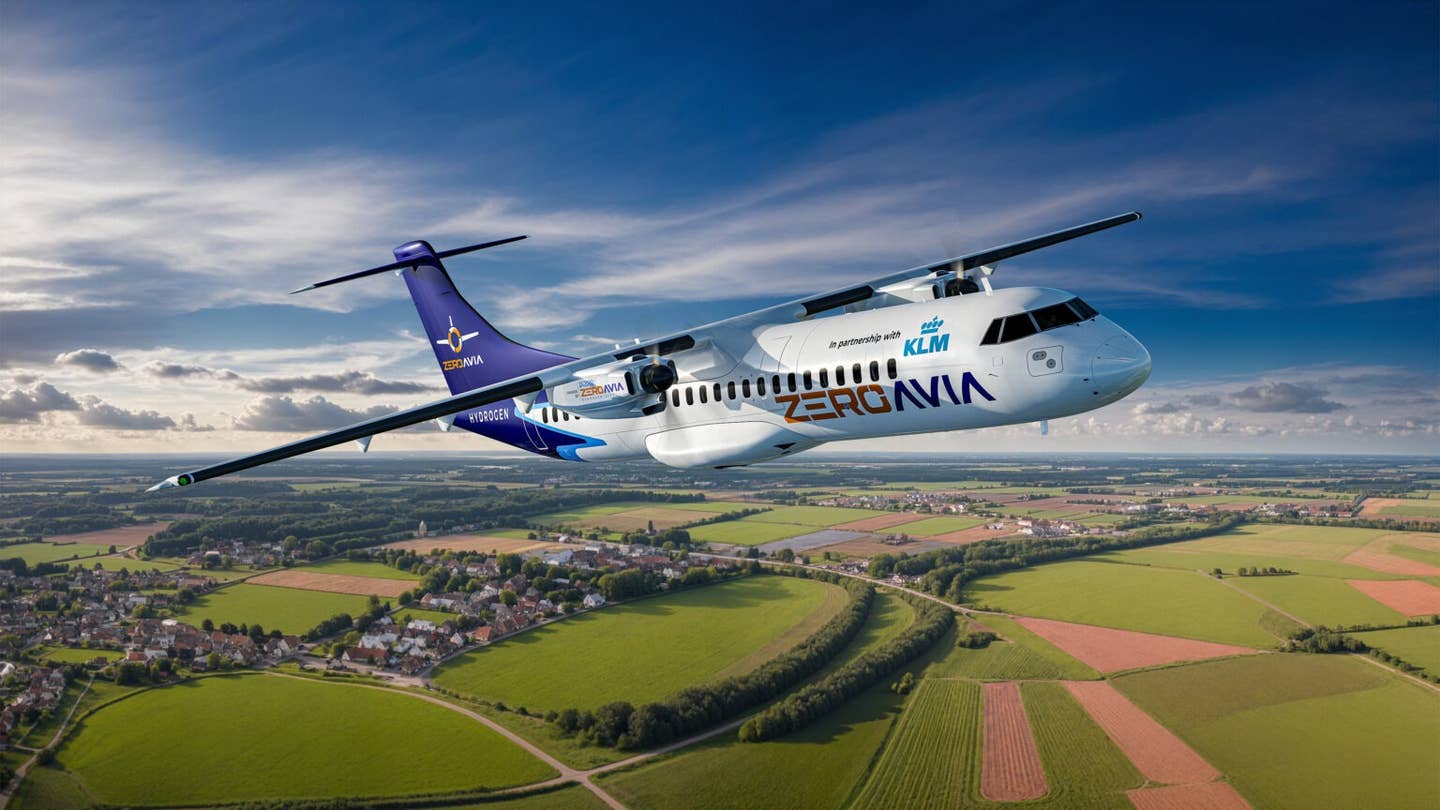Japan’s SkyDrive Plans Electric Air Taxi Service Out of Augusta Regional Airport
The company is also eyeing a pair of airports in South Carolina to bolster its network in the U.S., where it intends to launch operations as soon as 2026.

SkyDrive’s three-seat eVTOL air taxi may fly in Georgia as soon as 2026. [Courtesy: SkyDrive]
Automobiles are some of Japan’s most popular exports to the U.S., but a Japanese startup is looking to deliver a very different kind of vehicle to the States.
Electric vertical takeoff and landing (eVTOL) air taxi manufacturer SkyDrive on Friday signed a letter of intent (LOI) with Augusta, Georgia-based private charter operator Bravo Air for a preorder of up to five Skydrive SD-05 models. SkyDrive and Bravo will develop commercial use cases for the three-seat aircraft out of a hub at Augusta Regional Airport (KAGS), with the intention of adopting the former’s business model for air taxi services in the region.
The partners are receiving further support from the state of Georgia and other state and local stakeholders.
“We are pleased to welcome SkyDrive to the Augusta Regional Airport and the Central Savannah River Area,” said Augusta Mayor Garnett Johnson. “We see our vision for a greener future coming to fruition with companies starting to adopt these new electric aircraft and embracing these new eco-friendly technologies.”
Added Herbert Judon, executive director of Augusta Regional Airport: “Staff have worked diligently to prepare the infrastructure necessary to support the needs of this new industry. We are pleased to see this nascent industry start to grow and expand in our market.”
Bravo bills itself as a nonmembership, on-demand service. Its private charter fleet comprises propeller-powered air taxis, turboprops, and light, midsize, and large private jets, including the Cessna Citation Ultra and King Air 200. In addition to passenger flights, the company offers medical and cargo charter and aircraft management services.
The partnership with Bravo adds to SkyDrive’s existing relationships with stakeholders in South Carolina, including a preorder for up to five aircraft from Part 135 charter operator Austin Aviation. It plans to expand beyond South Carolina into Georgia by developing an eVTOL air taxi network connecting Augusta Regional Airport to destinations across the region.
“As we embark on this new partnership with Bravo Air, we are thrilled to witness not only the growth of SkyDrive but also the broader eVTOL industry in the U.S. market,” said Tomohiro Fukuzawa, founder and CEO of SkyDrive. “This collaboration with Bravo Air marks a significant step forward in our shared objective of advancing AAM development, particularly in the Southeast region in the U.S.”
SkyDrive envisions an on-demand service with lightweight eVTOL aircraft—one that integrates into existing transportation systems and could turn “virtually any location” into a takeoff and landing site. Customers would be able to reserve and check-in to flights using their smartphone, akin to the experience provided by Uber or Lyft.
The SD-05, which the company simply refers to as “SkyDrive,” is designed for one pilot and two passengers. It has a limited range of about 9 sm (7.8 nm) and cruises at around 62 mph (54 knots). The company hopes to fly the model autonomously without a pilot and extend its range to about 25 sm (22 nm) by 2031.
The eVTOL runs on two dozen motors and rotors powered by electric batteries. These produce 65 dB of noise—about the volume of normal conversation—for observers on ground, which SkyDrive claims is one-third the volume of a helicopter. The company also maintains the aircraft’s takeoff weight is one-half that of a typical helicopter, allowing it to use locations such as building rooftops for takeoff and landing.
SkyDrive, like many competitors, has sourced several components for the SD-05, including avionics from Avidyne and flight control systems from Thales. However, it has the advantage of calling automaker Suzuki its core manufacturing partner.
Earlier this month, SkyDrive and Suzuki began production of the first air taxi at a facility in Iwata, Japan—owned by Suzuki—where SkyDrive intends to produce more than 100 aircraft per year. The site is expected to open in the spring.
SkyDrive is targeting airworthiness certification from Japan’s Civil Aviation Bureau (MLIT) in 2025 in order to fly at Expo 2025 in Osaka, Japan, later that year. Type certification is expected to follow in 2026.
The manufacturer first announced plans to enter the U.S. market through South Carolina—where it will establish a regional home base—in January 2023, targeting operations in 2026.
Fukuzawa said a factor in the decision was that the state is home to more than 400 aerospace and aviation companies, including Boeing and Lockheed Martin. The company also cited the region’s mild climate, abundant tourism, and conveniently located airports as draws.
Working with state and local government agencies, SkyDrive will design an advanced air mobility (AAM) network based around two hubs, Columbia Metropolitan Airport (KCAE) and Greenville Downtown Airport (KGMU). Before launching service, the company will model an “FAA-compliant AAM ecosystem,” using infrastructure requirements based on use cases for flights originating from those airports.
Vertiport developer Volatus Infrastructure & Energy Solutions (VI&E) is also part of the South Carolina partnership, supporting SkyDrive with infrastructure expertise. The company intends to construct vertiports at Wittman Regional Airport (KOSH) in Oshkosh, Wisconsin, Bellefonte Airport (N96) in Pennsylvania, and Greenport International Airport, a planned green airport project underway near Austin, Texas.
With a partnership already in place, those locations have potential to serve as future SkyDrive hubs.
Like this story? We think you'll also like the Future of FLYING newsletter sent every Thursday afternoon. Sign up now.

Subscribe to Our Newsletter
Get the latest FLYING stories delivered directly to your inbox






